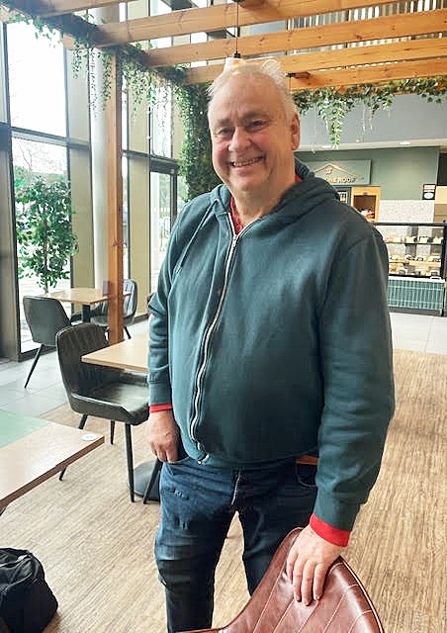Following the exposure of the ‘appalling and unliveable' council housing conditions some people have endured during lockdown in London, attention was drawn to the inhabitable living conditions experienced by residents living in council-run properties up and down the country – especially during the turbulent COVID-19 pandemic.
A recent ITV news investigation highlighted the plight of people living in council-run properties in Croydon, in south London and it cited residents living in ‘unliveable’ council housing conditions. Many have been enduring such atrocious conditions during lockdown measures.
Since 2019, residents of a tower block in South Norwood have been complaining to their landlord, Croydon Council, about leaks in their flats that have now contaminated their homes, thereby turning them into dangerous places to actually live. The programme showed Fransoy Hewitt, who lives on the ground floor with her two sons, aged five and seven, started noticing damp and mould 18 months ago. Her flat was damaged by mould, damp and leaks and her two sons were forced to live in a small bedroom which was the only non-damaged section of the flat.
These environmental incidences were further compounded by Hewitt’s son who suffered a respiratory condition (unable to breathe at nights). TV footage showed the magnitude of this residential squalor, as the floors of the flat were wet, with a black mouldy-like kitchen, unfit for use.
To prevent electrocution, the fridge was unplugged for months. There was no light in the bathroom; the sofa was destroyed along with many shoes, furniture and toys.
In Birmingham, the City Council, along with the NHS and Solihull Metropolitan Borough Council have worked together to develop a refreshed Sustainability and Transformation Plan (STP) Strategy. The strategy sets out initial thoughts on how we will improve the health and wellbeing of people living in Birmingham and Solihull.
They want the people of Birmingham and Solihull to lead fulfilling, healthy, independent lives, receive consistently high quality health and care services, have early access to extra help when they need it and have easy access to support when they can no longer live independently.
Under their new Charter of Rights and Quality Standards for exempt supported housing, those in supported housing, where accommodation is provided alongside care, support or supervision to help people live as independently as possible. Those who are often housed in this type of property are the homeless and other vulnerable groups, such as those with support needs or disabilities.
With people still living in ‘cladded’ tower blocks – post Grenfell Tower – and council houses and flats, which are inhabited by men, women and young children, showing deep-flooded rooms with equally-damp, mouldy walls – and that’s for those who are ‘lucky,’ the Council’s priority on sustainable housing and living conditions remain ‘a must do’.
Councillor Sharon Thompson, Cabinet Member for Homes and Neighbourhoods Birmingham City Council, is leading the drive to make sure people in Birmingham uphold their rights to live in habitable dwellings. Once a homeless person, she will be responsible to ensure city residents live in conditions that they deserve in Birmingham today – regardless of who, or where.
With evidence of mothers living with young children, whilst wading through ‘pools’ of water in kitchens and living rooms, the problem is not exclusive to Croydon. Councils up and down the country, at the very least, have to make sure the people who voted them in have a right to live in a habitable, clean and comfortable abode – regardless of circumstances.
In addition, proper housing conditions including affordability, contributes positively to the mental health and overall wellbeing of citizens including families from all backgrounds. There is a direct link between poor housing and inequality at levels of society. There are glaring examples of this across different groups of citizens and types of housing tenure in many parts of England especially. When we consider the impact of coronavirus on the lifestyles of many, living under poor housing conditions, can only reinforce future risks to the lives of millions of people who are often disadvantaged and excluded from mainstream provision.
In going forward, we must end this embarrassing national episode of social injustice,
and, above all, we must think of our children in all this!
The Phoenix Newspaper has also investigated a claim of terrible conditions in Council Housing in Birmingham, where there were children with special needs living in similar condition.
Photographic and video evidence was submitted in 2018 to Cllr Sharon Thompson, but unlike her counterpart in Croydon, she did not act to remove the family from the situation immediately.
The Council Inspector that was sent out said that he felt that the state of the property was not urgent enough to remove the family from the home, despite a 3 year old suffering with seizures and epilepsy. He made it clear that that there were thousands of homes in a similar situation.
There was sewage water that repeatedly seeped into one room before flowing out into other parts of the home. The water and electricity along with black mould was an ongoing problem and yet, with all this, the inspector said he did not see it as a priority.
The mother told us she has also had regular visits to the children’s hospital due to the epileptic fits and skin infections that the 3 year old suffered during this time. Sadly to this day there are still 3 children living in one room in that same flat, 3 years on.
Birmingham City Council issued a statement in response to Phoenix enquiries - “Birmingham City Council’s safeguarding policy is that the child’s safety and wellbeing must be the paramount consideration at all times.
“In February 2020 the Birmingham Safeguarding Children Partnership published our refreshed threshold guidance called “Right Help, Right Time” – Delivering effective support for children and families in Birmingham.
“Our ambition is that all children and families in every part of the city achieve their full potential and are supported by a confident workforce with a common core of knowledge and understanding of children’s needs, the importance of building positive relationships and a consistent approach to practice.
“More details on our policy are available on our website at https://bit.ly/3sGHRJF”

















